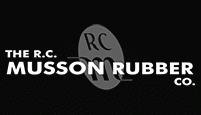By Michael Wilson
According to an August 2017 study by Forrester, a research organization that conducts surveys into business trends and directions, today’s business buyers are increasingly self-directed.
By this, they mean that business-to-business (B2B) purchasers such as church administrators making buying decisions for their churches, increasingly rely solely on their own judgment.
These buyers are not interested in meeting with distributors or other salespeople, no matter how charming they may be. In fact, here is what Forrester uncovered:
- Fully 60 percent prefer no interaction whatsoever with a sales rep.
- Sixty-eight percent prefer to research online on their own, without the help of a sales rep or others in their office before making a business purchasing decision.
- If and when they do select a vendor to work with, they do it based solely on digital content; this refers to educational blogging programs that many suppliers and manufacturers now provide online.
This is all part of an online purchasing trend that has accelerated in recent years as more Millennials are entering the workplace. Many of these folks have minimal experience purchasing items in a brick-and-mortar store, and even fewer have ever set foot in a distributor’s warehouse or worked directly with a janitorial distributor.
Should Distributors Pack Their Bags and Go Home?
After reading these studies and trends, it appears distributors – those selling everything from cleaning products and paper towels to HVAC systems, computers, and software – might as well pack their bags and go home. They are no longer needed. However, that may be jumping a little too far.
Gartner, yet another research firm, finds that those charming sales reps may still be needed after all. Their research, which was reported in the Harvard Business Review in 2017, finds many of these online shoppers are often “deeply uncertain and stressed.”
According to their research, instead of providing solutions, all this online information causes some self-directed purchasers to become overwhelmed. They become paralyzed when it comes to making purchasing decisions, not empowered.
There can be a lot of losers when this happens. For church administrators, it can mean making costly trial-and-error purchases, and when it comes to my industry, professional cleaning, it can also mean selecting cleaning solutions that may not be the most effective or cost-effective for their houses of worship.
Calling in the “Consultants”
What might be a more effective scenario for church administrators is to do their online research first, but then finish the selection process by actually meeting and working with a living, breathing salesperson. Possibly, we should not even use the terms “salesperson” or “sales rep.”
In today’s world, administrators no longer want to be sold anything. Instead, they want to work with someone they can consult with; someone they can discuss their organization’s needs with; and someone who can help guide them so that they make more effective and cost-effective purchasing decisions.
This is a form of what is termed consultative selling, which some distributors are now providing. Often, to assist in the process, they work with computer dashboard systems, some of which are now free, that allow distributors and church administrators to analyze a wide range of products together.
Using cleaning products as an example, here are some of the benefits that can result:
Price and cost comparisons
The “sticker” price of a cleaning solution tells just half of the story when it comes to costs. The other half involves mixing ratios. If two cleaning solutions cost the same, but product “A” must be mixed four parts chemical to one part water, while product “B” has a mixing ratio of 2 parts chemical to one part water, it becomes clear that product A will be more costly in the long run. Things like this are pointed out when a distributor is no longer a salesperson, but a consultant.
Which products where
Let’s say an administrator must select a floor finish (wax) for her church. Some hard surface floor areas receive heavy foot traffic; some moderate foot traffic; and still others very little foot traffic. Will one type of floor finish work on all three floors? The answer is usually no. A distributor working as a consultant will likely point out that the church may need three different types of floor finish based on the amount of foot traffic each area receives.
Promote sustainability
More and more churches recognize their role as stewards, protecting natural resources and the health of our environment. A consulting distributor would likely suggest selecting higher concentrated solutions, packaged in five-gallon containers instead of less concentrated solutions in one-gallon containers, as is more common. Higher concentrations means the chemical lasts longer and combined with larger containers, it means less fuel is needed to deliver the product, fewer greenhouse gasses are released, and less packaging is necessary.
Improving worker productivity
One experience many distributors share is that their clients often make purchasing decisions out of habit. A product has proven effective in the past, so they continue to re-order it. However, manufacturers in the professional cleaning industry have made significant advances in the past decade.
For instance, returning to our earlier floor finishing discussion, older floor finishes may require the application of several coats. This means more floor finish, which is costly, requiring more time to apply, which is also costly. A consultative distributor can point to finishes that may produce the same results but using fewer coats of finish. This can be a cost savings in more ways than one.
Our takeaway is this. While we know more people are researching and making purchases online for a wide range of products, it is important to realize that that process can have limitations, especially when it comes to selecting products for building operations.
Adding a consultant to the process can help eliminate a lot of the stress, worry, frustration, and result in more effective, accurate purchasing decisions.
Michael Wilson is vice president of marketing for AFFLINK, a global leader in supply chain optimization, providing clients with innovative processes such as the ELEVATE process as well as procurement solutions to drive efficiencies and help reduce operating costs for today’s leading businesses, www.afflink.com.













